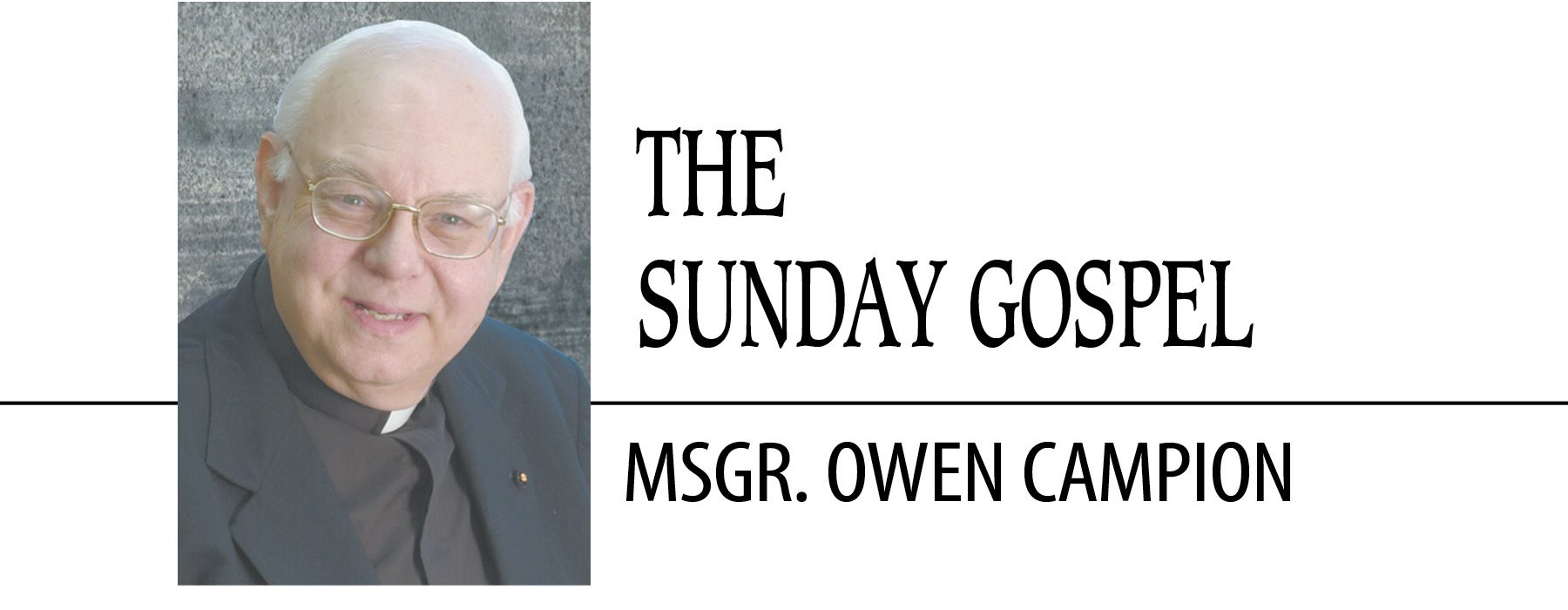August 1, 2020 // The Sunday Gospel
God provides abundantly and completely through Jesus
Eighteenth Sunday in Ordinary Time
Matthew 14:13-21
The last and third section of the Book of Isaiah is the source of this weekend’s first reading.
The first section of Isaiah was written when the Hebrews still were living in the Promised Land, although clashes among them had divided the land into two kingdoms. Divided, weakened and small, the two kingdoms were vulnerable before the imperialistic ambitions of neighboring powers.
These vulnerabilities proved decisive when the strong Babylonian Empire overran the Hebrew kingdoms. It was a fearful time. Many died. Others were taken to Babylon, the empire’s capital, located in modern Iraq. Those who were left in the land languished in misery and want.
At last, Babylonia itself fell. The exiles returned, only to find a sterile and unhappy place. Little had improved with the passage of several generations.
Amid the disappointment of the returning exiles came the composition of the third section of Isaiah.
It was bad. People literally had to worry about the next meal. So, this prophet’s words were very relevant. They assured discouraged audiences that God would supply, and that God would be the only source of life and sustenance. Still, for many, it was a hard proposition to accept. When would God supply the people in their need?
For its second reading, the Church offers a selection from Paul’s Epistle to the Romans.
This work also was written when stress was quite evident. The Christian Romans lived in a culture very hostile to the Gospel. The political and legal systems were turning against Christians. Indeed, St. Paul himself eventually would be executed.
Very clear in the reading is Paul’s encouragement and admonition. He calls upon those facing temptations and doubts to be strong in their resolve, urging them to hold to Christ, letting nothing separate them from the Lord.
St. Matthew’s Gospel provides the third reading. It is the familiar and beloved story of the Feeding of the Five Thousand.
In this storyline, a large crowd is following Jesus. Within this crowd are sick people. Typically, and as surely the sick hoped, the compassionate Jesus healed them.
Here immediately, however, it should be noted that healing had then a meaning far different from treating an injury or disease today. It meant overcoming the evil effects of sin. The ancient Jewish idea was that human sin brought every distress into the world.
Finally, almost no food was available — only five loaves of bread and a few fish. Unwilling to send the people away, Jesus provided for them. He took the food, blessed it, gave it to the disciples to distribute, and the leftovers filled 12 baskets. This miracle anticipates the Eucharist.
Important in the story is the role of the disciples. They literally gave the food, blessed and multiplied by Jesus, to the great throng.
Reflection
A great, constant, and underlying message of the New Testament is that there is more to life than what humans see or hear around them. A basic lesson of the Church, largely overlooked today, is that human life is eternal, either in heaven or hell.
Everything in the New Testament must be seen in this context. So, the story in this weekend’s Gospel if not simply about physical hunger, which passes with earthly death, but nourishment for the eternal soul.
This fact is obvious. Humans are weak and unable to provide everything for themselves. They cannot assure eternal life for themselves.
The Church’s reassuring message is that God provides, abundantly, completely and finally in Jesus. The Lord indeed gives food, the “bread of life.” Sin leaves us starving and desperate. Sin brings death, faith gives life.
The Lord’s great, compassionate gift continues through the Church, founded on the disciples.
Nourished by Jesus, to imitate Jesus, Christians should care for others in need.
The best news. Delivered to your inbox.
Subscribe to our mailing list today.






